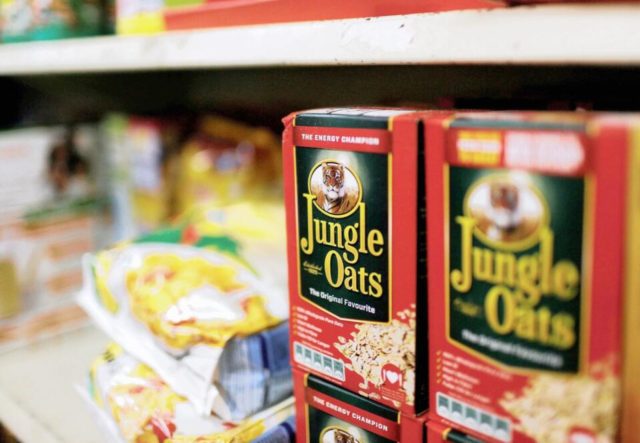Tiger Brands, South Africa’s biggest food producer, has provided some indication of just how sharply food prices have risen after it pegged its overall basket inflation at a whopping 15 percent in the five months to August 31, from only 3 percent at March 31.
TIGER Brands, South Africa’s biggest food producer, on Monday provided some indication of just how sharply food prices have risen after it pegged its overall basket inflation at a whopping 15 percent in the five months to August 31, from only 3 percent at March 31.
“High levels of inflation are anticipated to persist across our basket well into the next financial year, which will require ongoing agility and judicious price/volume management in the face of a challenged consumer,” Tiger’s directors said in an otherwise upbeat trading statement.
“Extraordinary cost pressures on soft commodities, ingredients, packaging and logistics” had made pricing realignment necessary in the group. Its many brands include Oros, Crosse & Blackwell, Ace and Beacon.
The high food prices is also reflected in the latest general inflation data – Statistics SA said food prices continued to rise in August, with food and non-alcoholic beverages 11.3 percent higher than in the same month a year before. The figure also outpaces the annual inflation of 9.7 percent in July.
Tiger’s director also warned the group’s prospects in the future will depend on a consistent diesel supply – heavy investments had been made in electricity generators although the cost of operating them was four times the Eskom electricity tariff, Tiger’s director said.
The effect of prolonged electricity outages on inbound supply is being closely monitored,” they said, adding there had not been a big impact on production so far from load shedding, due to the use of the generators.
Despite the glum news for consumers, Tiger’s share price nonetheless increased more than 9 percent to R175.77 on the JSE on Monday morning.
Positive investor sentiment may have arisen from Tiger forecasting headline earnings per share to increase between 38 percent and 45 percent in the year to September 30, 2022 following an improved underlying performance.
The share price traded at R175.77 on the JSE in intraday trade. Headline earnings per share from total operations were expected to be 394 cents and 507 cents higher than the 1,127 cents reported at the same time in the 2021 financial year.
Earnings per share from continuing operations were expected to be between 45 percent and 55 percent higher, or between 482 cents and 589 cents higher than 1,070 cents reported last year.
But the results were positively impacted by R157 million, or 96 cents per share, of insurance recoveries from claims arising from a canned vegetable product recall and civil unrest included in the second six months of last year, which impacted the year-on-year comparative performance.
A precautionary recall of certain baby powder products were estimated to have resulted in once-off costs between R20m and R25m, and largely comprised the cost of affected stock to be written off, as well as the logistics’ costs of the recall.
The group said its earnings improvement was driven by recoveries in snacks and treats, wheat millbake and their export divisions. The results are expected to be released on December 2, this year.
– BUSINESS REPORT








